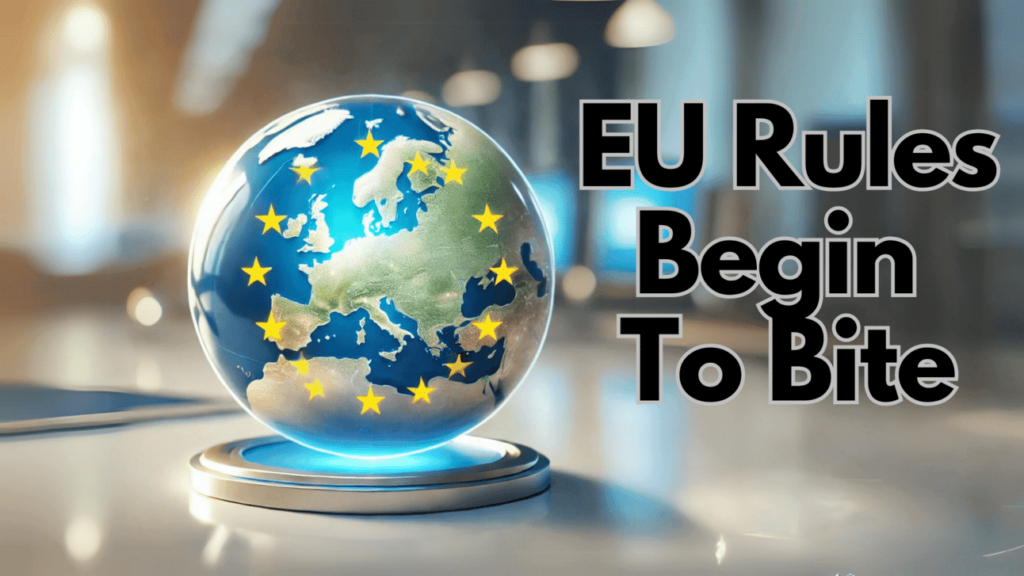Tim Mohin: EU Sustainability Rules Begin to Bite

For more from Tim Mohin, sign up for his newsletter here
While there are still many questions about how all of these policies will work and interact, the time for implementation has arrived.
In the last month, two new regulations have been formally adopted: the EU’s Eco-design Sustainable Products Regulation (ESPR) and the Corporate Sustainability Due Diligence Directive (CSDDD).
The ESPR is a framework regulation that will eventually require the majority of products sold on the EU market (food and medicine are the only exceptions) to make their products more sustainable, or risk penalties still to be determined by member states. A critical and challenging part of this rule is creating digital product passports containing information about materials, repair and recycling instructions, and environmental performance.
Only a few months ago, it looked like the CSDDD might not pass, but after some key changes reduced the number of affected companies, it scraped through. As of July 25th, 2024, it is an official law, and the EU Commission released FAQs to summarize the rules. Member states have until July 2026 to transpose the rule into national law, and the first group of companies must comply by 26 July 2027.
Even more pressing are the deadlines for the EU’s Deforestation Regulation (EUDR) and Corporate Sustainability Reporting Directive (CSRD):
- For the EUDR, companies importing products derived from cattle, cocoa, coffee, palm oil, soy, timber, and rubber will need a customs declaration regarding the product’s effects on deforestation by the end of this year. The declaration must prove that the products were not derived from areas deforested or degraded after December 31st, 2020.
- For the CSRD, some companies have already begun to report, and thousands more will report next year. Last week, the European Financial Reporting Advisory Group (EFRAG), released a European Sustainability Reporting Standards (ESRS) implementation study, looking at the practices of 28 companies that have already reported using the standards. The study highlights the practices and challenges of these 28 companies, focusing on double materiality, data points, value chains, and more.
The pressing deadline of the EUDR is fueling an international uproar, with the US joining a growing chorus of nations challenging the fairness and feasibility of the rule and asking for a delay. However, the EU will stay the course, with European Environment Commissioner Virginijus Sinkevičius saying, “We are hearing feedback from some stakeholders that preparation for implementation may be challenging. However, we also see encouraging signs in many sectors and countries working to align with EUDR requirements.” For example, major cocoa producers – Ghana and the Ivory Coast – have been preparing for EUDR and expressed “deep concerns” over calls for a delay.
The clear message to companies doing business in the EU is, “Get to work—it is time to comply!”












